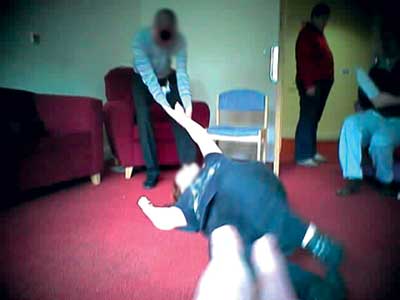
Following the publication of the recent serious case review into events at Winterbourne View hospital it is tempting to join the masses in becoming ‘armchair analysts’ and condemning the company, and the staff for their corporate failings and abuse. While there can be no circumstances where such abusive behaviour is condoned it is too simplistic to blame it on a culture of shareholder greed and uncaring staff.
As the founder of SPACE Training I have learnt from many years of partnerships with service provider organisations that the ‘health’ of the culture, at all levels in organisations can range from toxic through to inspiring. A ‘training alone’ approach rarely results in sustained behaviour change, which is why at SPACE we opted to develop a proven learning and development approach built around the British Institute of Learning Disabilities (BILD) code of practice.
Last year, before his untimely death, Professor Jim Mansell spoke at a North West positive behaviour support conference. I asked him about cynicism in the workforce and he replied with barely a pause: “You have to ensure that you get staff that do the job from the heart”.
This was before the Panorama Winterbourne View programme was broadcast. Jim Mansell had been consulted and appeared in the programme and yet felt that “doing the job from the heart” was part of the solution. I agree with him.
Looking back to the Winterbourne report, it is clear that the organisation’s leadership had implemented the training of staff in appropriate approaches and physical intervention techniques, so why did this not translate into practice with some of these staff? The answer may lie in Jim Mansell’s reply above; so much of today’s training simply teaches staff a set of control-based responses to escalating levels of challenging behaviour. It misses the need to challenge staff on their own part in this escalation based upon the values and attitudes that they bring to their working practice. If control and coercion are the order of the day then a training approach of this type can be easily distorted and nuanced to support a team’s negative culture.
The challenge for health and social care organisations when evaluating conflict related training is to encompass the technical and the relational. In terms of the technical aspect, is the training accredited by the appropriate bodies, such as BILD? And addressing relational issues, does the training promote a positive, relationship based approach characterised by dignity and respect, or is it characterised by control and coercion, a quick fix?
Good training challenges people, makes them think or re-think their values and behaviours. We must focus on this as well as person specific learning, supported by development of behaviour support plans as an alternative to a generic behaviour training model approach.
The health and social care sector will always rely on the goodwill and discretionary effort of the workforce and the challenge of minimising the potential and pervasive cynicism of people in these organisations will probably never be totally absent, particularly with the ever increasing body of private, equity group owned service providers.
That said, the partnership versus proprietary approach to training offers a good starting point and one that puts values ahead of price. To quote Lord Darlington’s response to the question, what is a cynic? “A man who knows the price of everything and the value of nothing” (Lady Windermere’s fan, O. Wilde 1892).


 Bournemouth, Christchurch and Poole
Bournemouth, Christchurch and Poole  Hampshire County Council
Hampshire County Council  Lincolnshire County Council
Lincolnshire County Council  Norfolk County Council
Norfolk County Council  Northamptonshire Children’s Trust
Northamptonshire Children’s Trust  South Gloucestershire Council
South Gloucestershire Council  Wiltshire Council
Wiltshire Council  Wokingham Borough Council
Wokingham Borough Council  Children and young people with SEND are ‘valued and prioritised’ in Wiltshire, find inspectors
Children and young people with SEND are ‘valued and prioritised’ in Wiltshire, find inspectors  How specialist refugee teams benefit young people and social workers
How specialist refugee teams benefit young people and social workers  Podcast: returning to social work after becoming a first-time parent
Podcast: returning to social work after becoming a first-time parent  Podcast: would you work for an inadequate-rated service?
Podcast: would you work for an inadequate-rated service?  Family help: one local authority’s experience of the model
Family help: one local authority’s experience of the model  Workforce Insights – showcasing a selection of the sector’s top recruiters
Workforce Insights – showcasing a selection of the sector’s top recruiters 

 Facebook
Facebook X
X LinkedIn
LinkedIn Instagram
Instagram
Comments are closed.